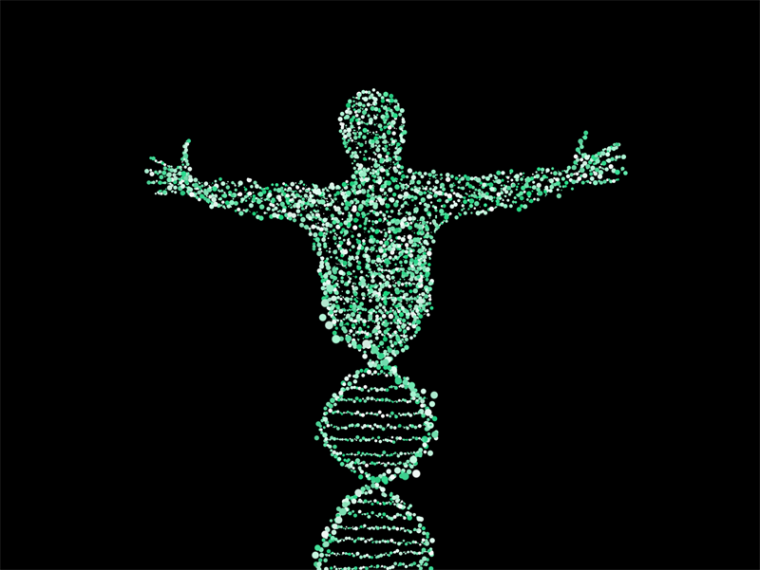
There exists an unnecessary tension.
Oftentimes people have been led to believe that faith is in opposition to science, that belief is different to fact, that creation is incompatible with evolution. That if one wants to be a good, faithful Christian, one must reject intelligent reason.
Numerous Christians offer their extraordinary God given gifts to the world via their services in different fields of the natural sciences. Yet, somehow, they do so with a sense of dissonance, rationalising that such activity is unspiritual.
There lingers the idea that faith in Christ is disconnected from and unconcerned with scientific activity.
Yet, it is my view that we are in error when we decide that different disciplines of knowledge are in competition with each other.
Each discipline, be it biology, psychology, economics, or theology each have their own scientific object of enquiry.
For biology, the object under investigation is life – plant life, animal life, human life, ecosystems, etc. For psychology, the object of investigation is the mind. For economics, the object of investigation is the flow of money. For theology, the object of investigation is God.
Different sciences have different objects of investigation.
Each science shares a common goal to ascertain knowledge of its own object of enquiry. Sciences combined, we humans gain greater knowledge of different aspects of reality.
So we are mistaken when we think that biology is trying to tell us who God is and why we exist. That is the aim of theology.
We are mistaken when we think that theology is trying to tell us how our bodies work and how our bodies have come to be the way that they are. That is the aim of biology.
Therefore: We shan’t turn to theological documents that aim to communicate who God is and why humans exist in light of God, and try treat them like biological texts. Likewise, we are at fault when we turn to biological data and attempt to use it to conclude whether God exists.
I don’t book in with a theologian for a medical check-up.
So if I want to know how ecosystems and living bodies have come about the way that they have, or what happened, I put my trust in the biologist’s best and current biological knowledge. If I want to know why I exist, and who the Creator is, I put my trust in the theologian’s best and current theological knowledge.
Interestingly, the first 12 chapters of the Book of Genesis is a specific type of genre from the ancient Mesopotamian world called ‘proclamation literature.’ (After chapter 12, Genesis shifts gear into a genre that is more historical like).
Importantly, this ancient theological text is not trying to give a modern, post-Enlightenment scientific analysis of how the world came to be. We must stop treating it as though it is. Genesis has its own specific context that it spoke into and that original context was not ours today.
I don’t go to an action movie and expect it to be a horror.
The questions the Book of Genesis intended to answer for its own time are not the same scientific questions we ask today. In fact, I have come to realise that the point of the first few chapters of Genesis is not only mind-blowingly awesome, it has nothing to do with biological, nor physical, science at all.
It appears to me that Genesis chapters 1 and 2 means to say that a specific God known in the ancient world – Yahweh Elohim – has built a Temple.
Genesis makes the claim that the entire universe is actually the temple of the ‘Lord God’ (YHWH El) which he made to live in. The proclamations in Genesis chapters 1 and 2, and the way they’re structured expounds this.
Yahweh, being the personal God of the Israelites. Elohim, being the Kingly God of the ancient Mesopotamian pantheon. ‘Yahweh Elohim’ thus avers that the God of the Israelites is the sovereign Creator God.
On days 1, 2 and 3, the ‘Lord God’ forms the foundations of the temple:
Day 1: He builds the day and the night.
Day 2: The sky and the waters.
Day 3: The land.
Fascinatingly, days 1, 2 and 3 are then paralleled by days 4, 5, and 6:
The Lord God then fills the previously formed foundations with beauty, wonder and life:
Day 4: God fills the day and the night from day 1 with the sun, moon and stars.
Day 5: God fills the sky and waters from day 2 with birds and fish.
Day 6: God fills the land from day 3 with land animals.
Forming and filling was how temples were built in the ancient world. Forming and filling is how Genesis 1 is structured.
Finally, the last thing that belongs in a temple is a picture or carving of the God who the temple is attributed to – an image of the God.
Finally, the last thing that God created were the humans – made in God’s image.
Different to other little temples to other little god’s that used wood or bronze or gold for their images, these images are alive. We humans breathe, we love, we create things ourselves.
Turns out Genesis 1 has nothing to do with how long a day is and who had the first bellybutton.
God built a temple that we call a universe, forms humans to be pictures of him in this temple, and purposes us to take care of it on his behalf.
We reflect God in this temple. Additionally, as characters who share the same particles as the rest of the matter around us, we reflect the temple pieces back to God. We are the living, breathing, rationalising beings of the universe, also inspirited by him. In this way, scientists function as priests of creation.
Sciences aren’t in competition with each other.
Hence, us human creatures, called by God, are to be creatures who enjoy intellectualising our faith and believing in science.

Andrew Hill is a true-blue Kiwi, born and reared in Aotearoa New Zealand. He has lived between Auckland, Dunedin and Hamilton, chasing his passion: Knowing God. Andrew has studied theology through various institutions, served as a Youth Pastor and as an Associated Pastor at a couple of Baptist Churches, and currently spends time with people with disabilities as a Community Support Worker through Spectrum Care. Andrew has just finished writing his first novel which he intends to publish shortly, and for fun, live streams on twitch.tv @theophilus_nz.
Andrew’s previous articles may be viewed at https://www.christiantoday.com.au/by/andrew-hill